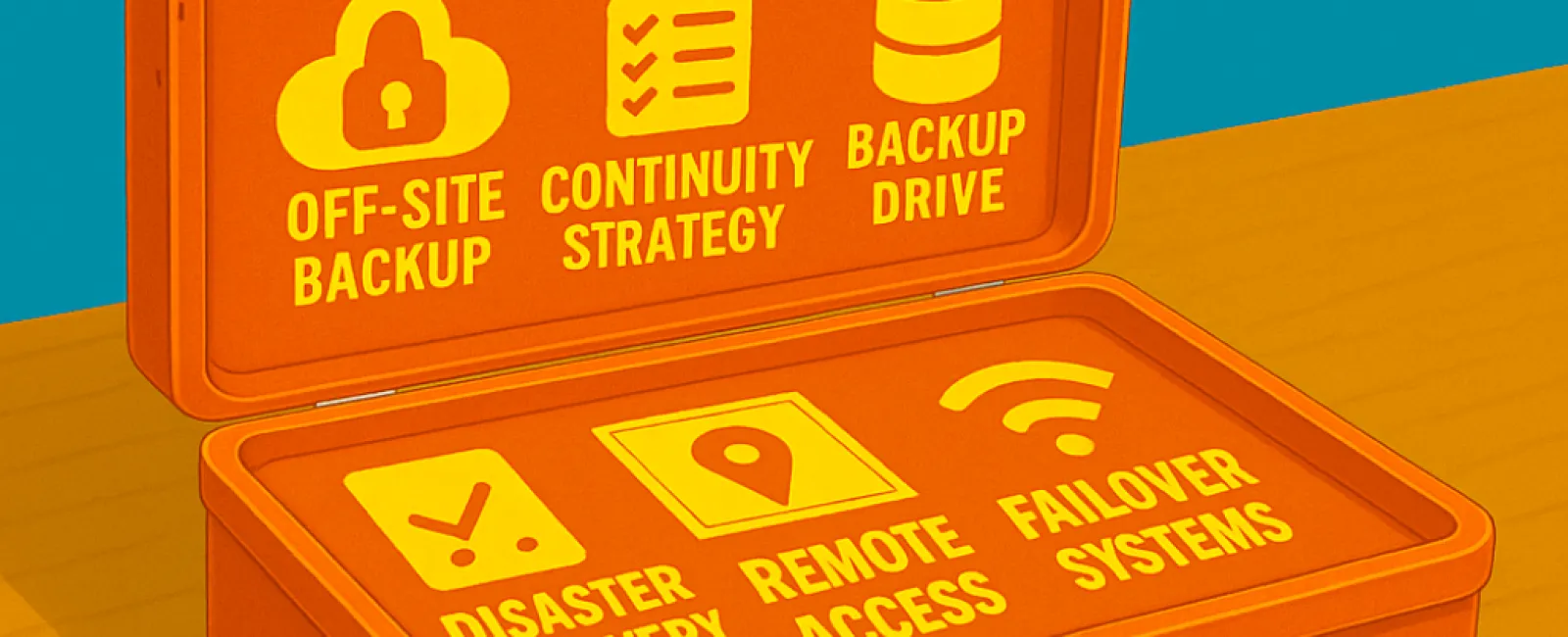July 25, 2025
Power outages, cyberattacks, hardware failures, and natural disasters rarely come with a warning, and when they occur, the effects on small businesses can be severe. Many people think having a backup is sufficient, but restoring a file is not the same as maintaining operations. If you cannot access your systems, support remote work, or keep your team and clients informed, even a brief disruption can lead to long-term problems. A dependable IT partner should prepare you for these situations—not just with backups, but with a comprehensive plan to keep your business running no matter what.
Backups Aren't Enough - You Need Continuity
Backups are important, but they are only one piece of the puzzle. What you truly need is a business continuity plan, a proactive approach that ensures your operations can continue during and after a major disruption.
When systems fail, files are inaccessible, or your office is unusable, having a backup file on a local server is not very helpful. Without a clear plan to restore operations quickly, you risk significant losses in revenue, reputation, and compliance.
Backups vs. Business Continuity: Know The Difference
Many businesses make this mistake:
Backups help you recover data. Continuity helps you remain operational regardless of the situation.
A solid continuity plan addresses critical questions such as:
How quickly can we recover? Where can the team work if the office is unavailable? Which systems are essential? Who is responsible for executing the recovery plan?
It also includes vital elements like:
Encrypted, off-site, and immutable backups Prioritized recovery timelines (RTO/RPO) Remote work preparedness Redundant systems and failover capabilities Regular disaster simulation exercises
If your IT provider cannot confidently explain these aspects, you are not truly protected; you are just fortunate so far.
Will This Actually Happen To Me?
This is not just a hypothetical warning to pressure you into a business continuity plan. These events happen and have serious consequences. Recently:
Florida hurricanes forced hundreds of businesses to relocate, leaving those without cloud access completely immobilized. North Carolina flooding destroyed on-site servers, wiping out months of records and invoices. California wildfires destroyed entire office buildings in the Pacific Palisades, many without off-site recovery plans. Numerous small businesses struck by ransomware discovered that their backups were either corrupted or never tested.
Disasters do not only affect large enterprises; they impact businesses like yours every day.
You Should Be Asking These Questions Right Now
If disaster strikes tomorrow, will your business continue operating?
Ask your IT provider:
How quickly can we recover if ransomware hits? Are our backups regularly tested, and which systems do they cover? What is the plan if a flood or fire destroys our office? Is our continuity plan compliant with industry regulations? Can we continue serving clients if our team must work remotely?
If you are not completely confident in the answers, your business may already be at risk.
Disasters Happen. Downtime Doesn't Have To.
You cannot prevent every power outage, storm, or cyberattack, but you can control how you respond.
A good IT provider helps you recover. A great one ensures you never miss a beat.
Want to find out where your business stands?
Click Here or give us a call at 702-745-9468 to Book a FREE 10-Minute Discovery Call, and let's make sure a disaster never turns into downtime.




